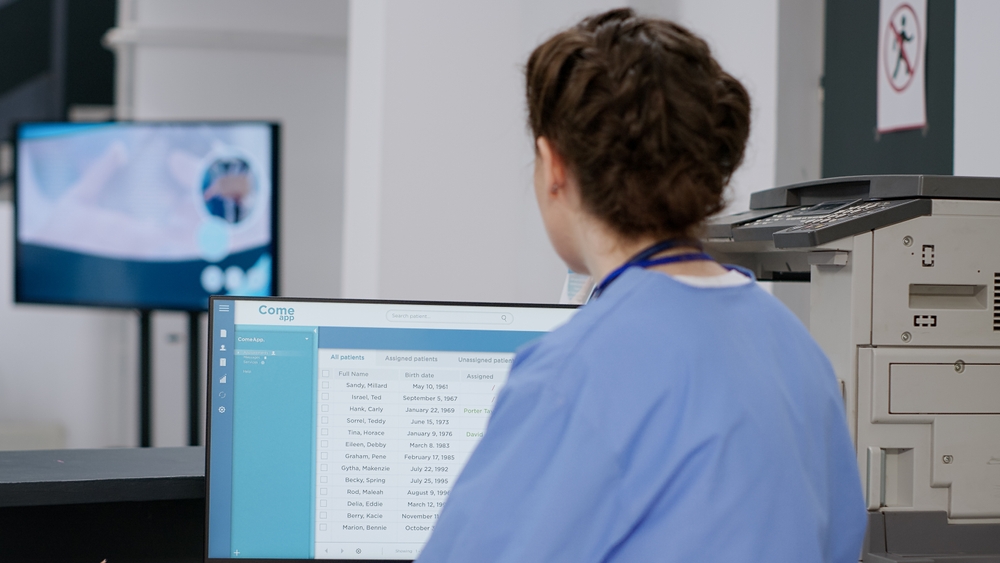Digital transformation has been a game-changer for many industries, including healthcare. Thanks to technology and digital solutions, healthcare facilities can streamline administrative tasks, optimize workflows, and provide better care to patients.
In fact, in 2021, 92% of healthcare professionals and institutes improved their performance, with digital transformation playing a vital role. This statistic underscores the significance of digital transformation in healthcare and highlights the potential benefits healthcare providers can achieve when they digitize most of their operations.
To improve your healthcare services and processes, investing in digital transformation can make all the difference. Read on to learn how digital transformation can help you improve patient care.
5 Benefits of Digital Transformation in Healthcare
It’s difficult to undergo a digital transformation if you don’t understand its perks. Below are the main reasons you should digitize your systems to enhance and simplify your services and workflows.
1. Makes remote care easier and more effective
Digitized healthcare enables patients, especially those with mobility issues like persons with disabilities and senior citizens, to seek treatment from the comfort of their own homes. The COVID-19 pandemic amplified this benefit, with telehealth usage surging by 78% from February to April 2020.
In the United States alone, 96% of all non-federal acute care hospitals and nearly 80% of office-based physicians also implemented a certified electronic health record system.
Plus, digital systems help reduce foot traffic in hospitals and clinics, relieving healthcare workers from heavy workloads and preventing the transmission of infectious diseases.
2. Improves patient-doctor and inter-hospital communication
Digital solutions allow patients to access professional health services online via chat or video calls and receive detailed prescriptions and treatment strategies via email or on their personal portal pages. This convenience significantly enhances patient engagement and satisfaction and makes it easier for people to stay on track with their recovery plans.
These tools also help doctors and other healthcare professionals coordinate patient transfers to different hospitals, ensuring patient information is readily accessible and improving continuity of care.
These benefits are important, given that miscommunication can lead to life-threatening complications. Patients may receive wrong or delayed treatments and medications, worsening their conditions. As a result, healthcare providers may lose their licenses and credibility.
3. Simplifies administrative tasks

Hospitals and clinics are responsible for providing, storing, and collecting medical reports, invoices, and other patient information. Those are massive amounts of data to handle. As such, accomplishing relevant tasks manually and accurately requires significant effort and time, potentially affecting service delivery.
Fortunately, healthcare information technologies such as electronic health records (EHRs) and patient portals make scheduling appointments, settling bills, and admitting patients quicker. They save time, reduce foot traffic in hospital lobbies and waiting rooms, and centralize data.
These perks are important given that patients hate waiting in hospitals. Past studies have shown that long waiting times can negatively impact patients’ willingness to return to their doctors and the utilization of healthcare services—not to mention the ability of healthcare professionals to attract and retain patients.
4. Provides full, easy access to patient records
Digital transformation in healthcare gives patients full and easy access to their medical records, enabling them to track and manage personal data for improved health management. They can easily present this data to other healthcare providers if they switch doctors or specialists for continuity of care and more informed medical decisions.
Indeed, digital healthcare services are vital in maintaining accurate health history and medication information for long-term health management.
For instance, patients with diabetes require regular check-ups and ongoing care management. With digital access to their medical records, they can easily share information about their condition and treatment history with their specialist without manually transferring records, enabling better coordination between providers and the creation of an updated treatment plan.
5. Improves patient outcomes

Advanced healthcare technologies, such as telemedicine, wearable devices, and remote monitoring, allow healthcare providers to automatically collect and analyze vast amounts of data, identify patterns, and improve diagnoses. They can also track patients’ health in real time, offering proactive care and timely intervention.
Moreover, extracting patient data can help healthcare professionals forecast future admission and visit rates, enabling them to ensure adequate staff is available to meet the demand.
These outcomes improve patient satisfaction, reduce hospital readmissions, improve healthcare service deliveries, and ensure staff availability—all of which are now more important than ever given the onslaught of the COVID-19 pandemic in recent years.
Digitize to Save Lives
Digital transformation is rapidly changing the face of healthcare, making it more accessible, convenient, and efficient.
At Ledelsea, we understand the importance of digital transformation in healthcare. As such, we offer various services to help you optimize operations and improve healthcare delivery for your customers. From enabling electronic health records to offering telemedicine solutions, our digital transformation services can help you thrive as a healthcare provider in the digital age.
Contact us today to learn how we can help your organization achieve its digital transformation goals.




